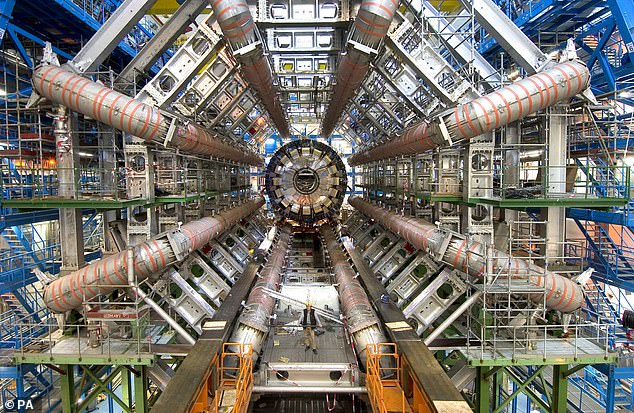
Scientists have unveiled ambitious plans for a revolutionary £17 billion particle accelerator, aiming to unlock the universe’s deepest mysteries. The Future Circular Collider (FCC), proposed by the European Organisation for Nuclear Research (CERN), is set to be a colossal 56.5-mile circular tunnel located beneath the Swiss-French border.
This groundbreaking accelerator, triple the size of its predecessor, the 16.6-mile Large Hadron Collider, promises to propel particles almost at the speed of light, colliding them and offering insights into the enigmatic dark matter and dark energy constituting a staggering 95% of the cosmos. The proposed project builds on the success of the Large Hadron Collider, where the discovery of the Higgs Boson, colloquially known as the God Particle, unfolded in 2012.
In contrast to its predecessor, the FCC will delve even deeper, plunging 650 feet underground to shield the surface from harmful radiation. Professor Fabiola Gianotti, director general of CERN, emphasized the necessity for a larger collider, citing the plethora of unanswered questions in fundamental physics and our comprehension of the universe.
The implications extend beyond theoretical physics, as particle accelerators have contributed significantly to cancer research. By generating high-energy protons targeting cancer cells precisely, these accelerators aid researchers in testing new drugs and dissecting DNA to understand the roots of cancer.
Despite the transformative potential, the Future Circular Collider won’t be operational until at least the 2040s. Funding for this colossal venture is expected to come from CERN’s 23 member states, including the United Kingdom, marking a collaborative effort to push the boundaries of human understanding and scientific exploration.
RELATED ARTICLES
- Researchers Warn Vaping is just as Harmful as Cigarettes
- WEF Scientists Warn Next Pandemic Will 'Kill Billions'
- Australians Facing Unprecedented Rise in Mortality Rates, But Leaders Stay Silent
- Spike Protein Makes Women 'Infertile', Scientists Warn
- Scientists Have Recreated World's Deadliest Flu Virus











